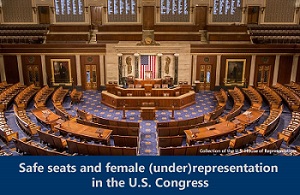
ISPS DEMOCRACY SERIES - WEBINAR EVENT
Frances McCall Rosenbluth and Ian Shapiro will present new work (co-authored by Akhil Rajan, Alex Kustov, and Maikol Cerda), with discussion of the research by Frances Lee (Princeton) and Jonathan Rodden (Stanford).
Abstract: Female representation has increased in the U.S. Congress in recent elections, but mostly among Democrats. We argue that one driver of women’s relative underrepresentation among the Republicans is the comparatively larger number of safe Republication seats. Because safe seats encourage ideological extremism and because women are stereotyped as more liberal than men, we expect women candidates to outperform men in safer Democratic seats but to underperform men in safer Republican seats (relative to more competitive seats). Based on a new dataset linking all candidates for the U.S. House and their districts’ partisan composition, we show that women entrants win elections in safer Republican (Democratic) seats at lower (higher) rates than men, which is driven by their lower (higher) success in primaries. Strikingly, our descriptive results suggest a female Republican candidate has a better chance of winning in a competitive seat than in a safe seat.
YALE PRESENTERS:
• Frances McCall Rosenbluth, Damon Wells Professor of Political Science, Yale
• Ian Shapiro, Sterling Professor of Political Science, Yale
GUEST DISCUSSANTS:
• Frances Lee, Professor of Politics and Public Affairs and Associate Chair, Department of Politics, Princeton University
• Jonathan Rodden, Professor of Political Science, Stanford University
The panel will be moderated by Alan Gerber, the Charles C. & Dorathea S. Dilley Professor of Political Science, Director of ISPS, and Dean of the FAS Social Science Division.
Please register on Zoom: https://yale.zoom.us/webinar/register/WN_9uvBKndPTv2Tm349bdPfhQ
This is a non-partisan event that is free and open to the general public.
Follow us on Twitter @ISPSYale #ISPSdemocracy
Sponsored by the Institution for Social and Policy Studies (ISPS) and the Center for the Study of American Politics (CSAP).
